If you are the owner of a private courtyard, a country house or a summer cottage, then you must want to have a neat and well-groomed yard. In order not to face the problem expressed in the excessive growth of weeds, it is better to use paving slabs to decorate the territory.
Brick, concrete and asph alt today are already relics of the past, tiles rule the roost. It is presented in different forms, and is united by one term - sidewalk. In order to choose the most optimal option for it, you need to familiarize yourself with the parameters. Previously, there were state standards for everything, but today the situation is much more complicated. Manufacturers produce tiles in different sizes, fitting them to their own needs, and not to general categories.
Some suppliers try to save raw materials, others buy imported lines with certain units of measure, while for third suppliers it is much more importantthe form. With the help of paving slabs, you can create a variety of patterns, resulting in a territory with unique variations, solutions and combinations of patterns.
Tile thickness
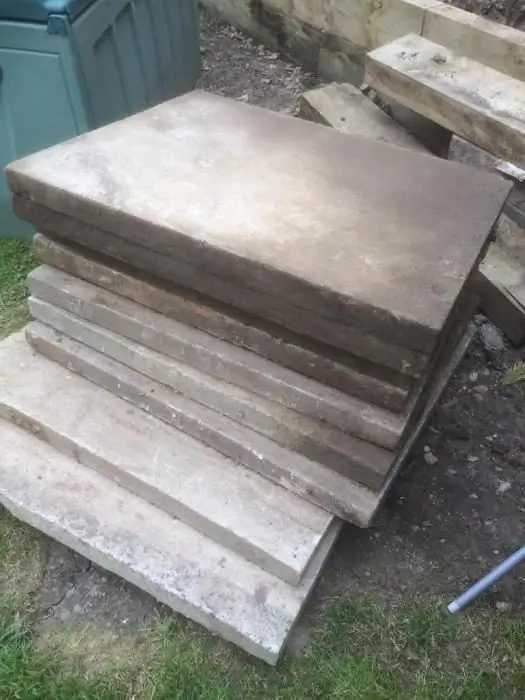
The visual component of the future territory depends on the width and length of the described products. Important in this matter is also the fact how well the material will fall into place. But the thickness of paving slabs determines its purpose and is one of the main performance indicators.
From the range offered by the selling organizations, tiles of several categories should be singled out, among them products:
- for footpaths;
- to create universal coatings;
- to form monolithic territories.
The thickness of paving slabs for footpaths is 30 mm. This option is the most budgetary and is used for garden paths, paving sidewalks, creating a house adjoining blind area, erecting steps, areas around the porch, as well as areas under sheds. Such products, however, are completely unsuitable for creating driveways, because they do not show the ability to endure high loads during operation.
But if you want to pave the area around a barbecue or outdoor barbecue, then pedestrian paving slabs will be a technically justified solution, which, according to experts, is the most acceptable.
Universal tile thickness
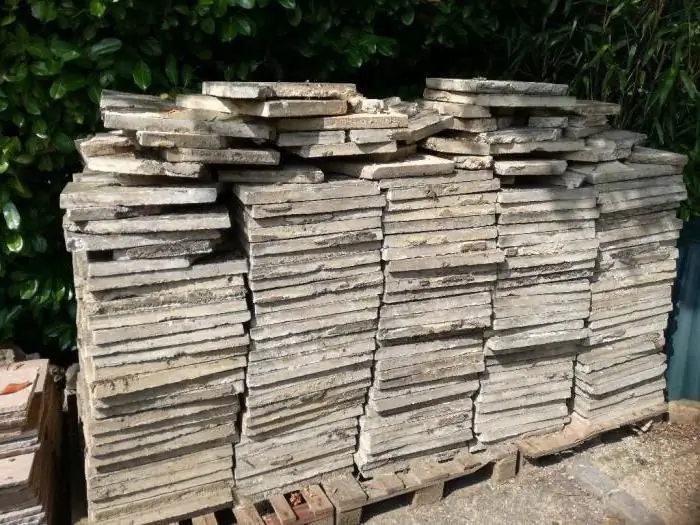
IfIf you are interested in the thickness of paving slabs, then you should familiarize yourself with universal products, their parameter mentioned above varies from 50 to 60 mm. Such products are more expensive, however, their scope is much wider.
Versatile tile fulfills its role when laying out park areas, paths and yards with it. You can also use such a cladding for driveways, as well as the floor in the garage, if it is planned to be used to store a car or minibus. With this tile, you can pave all the territories around the house. These products will be able to withstand almost any load.
The thickness of the monolithic coating
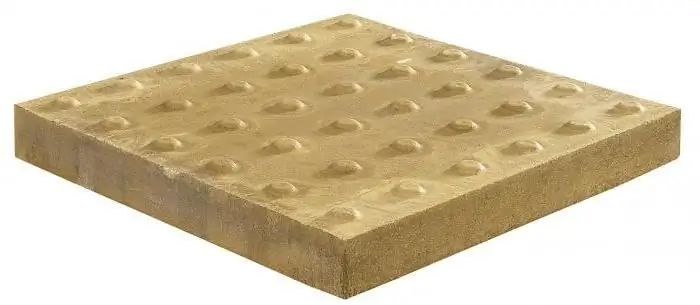
The thickness of paving slabs will be different if we are talking about monolithic products, in this case the described parameter varies from 70 to 80 mm. However, it may be more. Such products are quite expensive, and specialists charge a high price for the work on their paving. This coating is intended for driveways, parking lots, areas where trucks will pass, as well as areas that are planned to be operated under high loads. However, the monolithic coating is not afraid of any operating conditions.
For reference
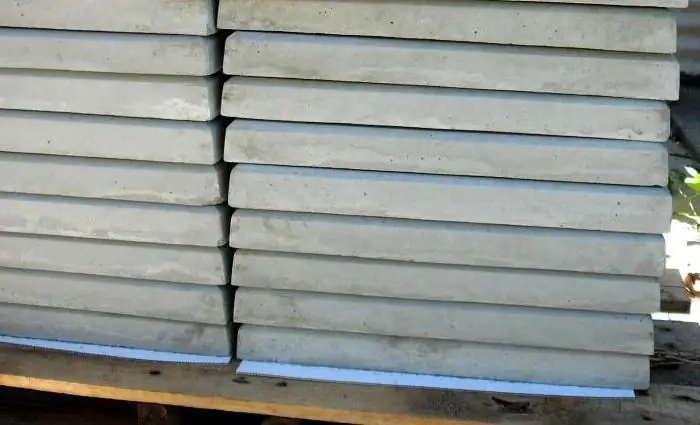
If you are interested in the question of what thickness of paving slabs will be the most optimal if you need to equip a personal plot in the garden, then it is best to use products thatthe described parameter for which starts from 30 mm. The maximum value for paving slabs is 60 mm thick. This approach will save money, because the product has an acceptable cost and has all the necessary characteristics. If you follow the laying algorithm, then the tile will fully exhaust its resource. However, it is not recommended to use it in areas where the loads will be quite large, such as access roads.
20mm tile features
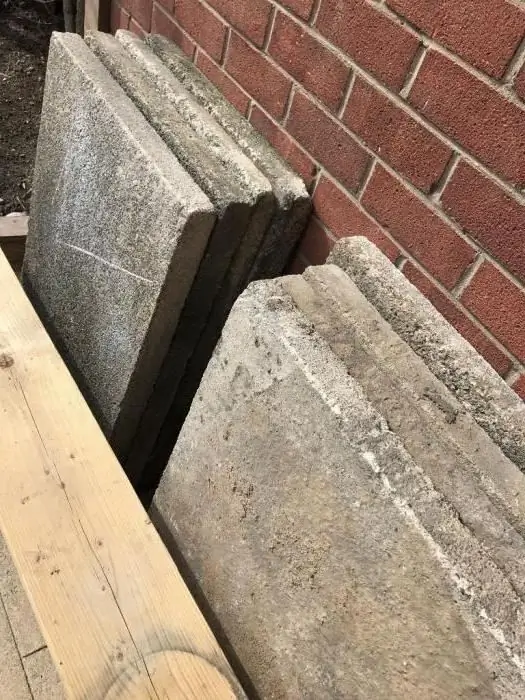
20 mm thick paving slabs have some positive features, among which we should highlight:
- frost resistance;
- aesthetic;
- environmentally friendly;
- ability to resist solar radiation;
- repairability;
- 15 year warranty.
This coating is not designed for strong mechanical stress. It can be used in the design of landscape design and in those areas where cars will not drive. This should include cases when you need to arrange a garden or pave a path, as well as make a miniature playground.
You need to know before choosing paving stones: 20 mm thick paving slabs can be classified according to several criteria, among them:
- production method;
- base material;
- surface size;
- amount and style of shade;
- shape.
As for the material, the tiles can be based on:
- rubber;
- concrete;
- porcelain stoneware;
- polymers and sand.
Tiles can be made by vibrocasting or stamping. The main advantage of such a coating is the affordable cost compared to those tiles that have a more impressive thickness. Laying such material is much easier, this is confirmed even at the preparation stage, when it is necessary to remove the soil for installation work. After all, if the thickness of the tile is more impressive, then the volume of earthworks increases. In addition, these paving slabs do not involve the use of hired force during laying, which allows for significant cost savings.
You don't even need to think about what kind of soil to use as a base. For the reason that the site will be unloaded, the surface should only be leveled, deepening a maximum of 15 mm. The base is covered with sand or gravel, and during installation, you only need to remember the horizontalness of the coating and the need to maintain gaps between products up to 4 mm. After they are filled with silicate glue, which provides the tiles with a snug fit and immobility.
Features of 30mm tiles
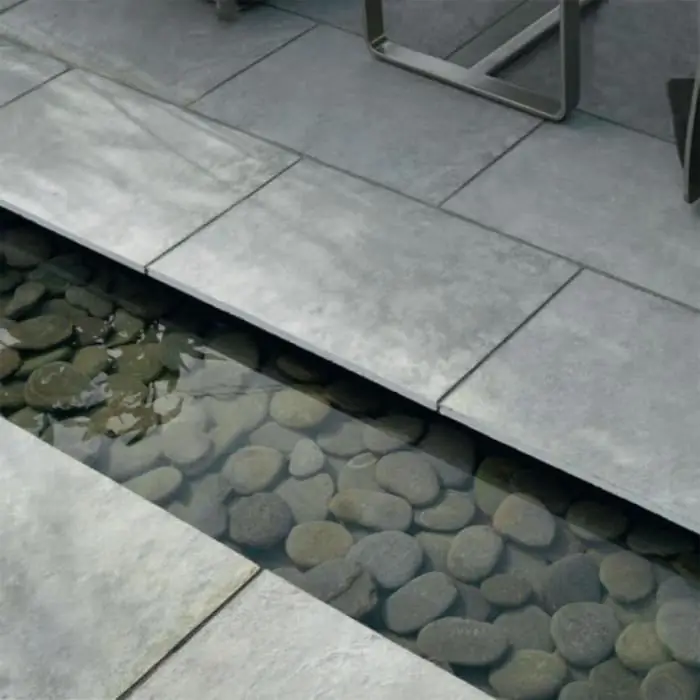
30 mm thick paving slabs also have their own characteristics, it is:
- green;
- consists of natural ingredients;
- not afraid of temperature changes;
- chemical resistant and easy to care for.
Such products can be produced not only by vibrocasting or vibropressing, but alsohyperpressing. The last type of work involves the supply of the composition under the influence of high pressure in a hyperpress.
For self-production of tiles with this thickness, the following materials may be needed:
- coloring pigment;
- sand;
- cement;
- water.
In order for the tiles to be more durable, a plasticizer should be added to the ingredients. Self-mixing of the composition must be accompanied by compliance with the proportions. If we are talking about sand and cement, then they are added in a ratio of 1 to 2.
The mixture is stirred, a dye is added to it, and then water, until a thick composition can be obtained. The solution is mixed in special containers, and then poured into molds that can be made independently or purchased at a hardware store. Molds can be silicone or plastic. The latter are more durable, but silicone ones, as practice shows, are more convenient to use. Before use, the mold must be lubricated with dishwashing detergent or a special substance.
Additional about the thickness
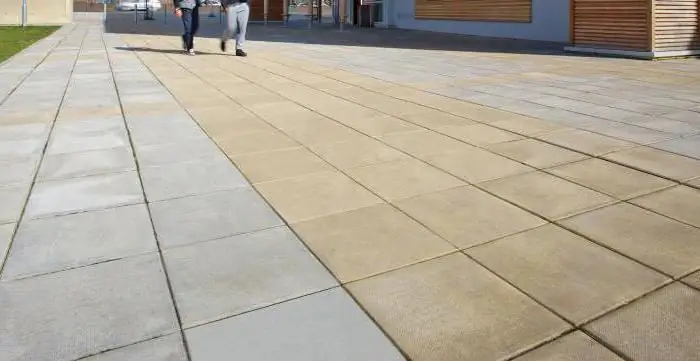
Paving slabs with a thickness of 40 mm, as mentioned above, can be used for pedestrian areas, this should include paths, footpaths and sidewalks. But for heavy loads, such a tile is not intended, which cannot be said about the one whose thickness is 60 mm. On such a surface, the movement of cars and pedestrians can be carried out. These products are suitable forbike paths and driveways to garages.
Thickness leaders
If you have a tile with a thickness of 80 mm in front of you, then it will already be able to withstand heavy traffic. The thickest is 100 mm tiles, which can be used to pave a reliable surface for trucks. It will be able to bear the weight of any vehicle.
Choose size
If you are faced with the question of what thickness of paving slabs for a car to choose, then you should know that you can use products from 60 mm for this. However, many consumers are also interested in whether they prefer large or small products. Here you should take into account several nuances. One of them is expressed in the fact that when using a small finishing element, more seams are formed on the surface. They will distribute the load well during intensive use of the surface, which is especially important for parking lots and garage entrances. But for straight garden paths, this almost does not matter, so you can use elements of any size and shape for them. If you have to pave a terrace with an irregular shape or an arcuate path, then it is better to prefer small paving stones, as this material allows you to create intricate radii.






